JOEL GOODMAN, a lyricist and composer, wanted to write a musical “about someone who changed the world. I brainstormed different people like Steve Jobs, Mark Zuckerberg, Elon Musk and also Alan Turing. In the end we decided on Alan Turing.”
The result is Alan Turing: A Musical Biography at the Riverside Studios at Hammersmith, London, which evokes the atmosphere of a bygone Britain. It’s something that parents should see with their teenage children.
It’s a remarkable piece about one of Britain’s most brilliant mathematicians who worked at Bletchley Park during the Second World War and led the team which broke the German Enigma code. That probably shortened the war and saved countless lives.
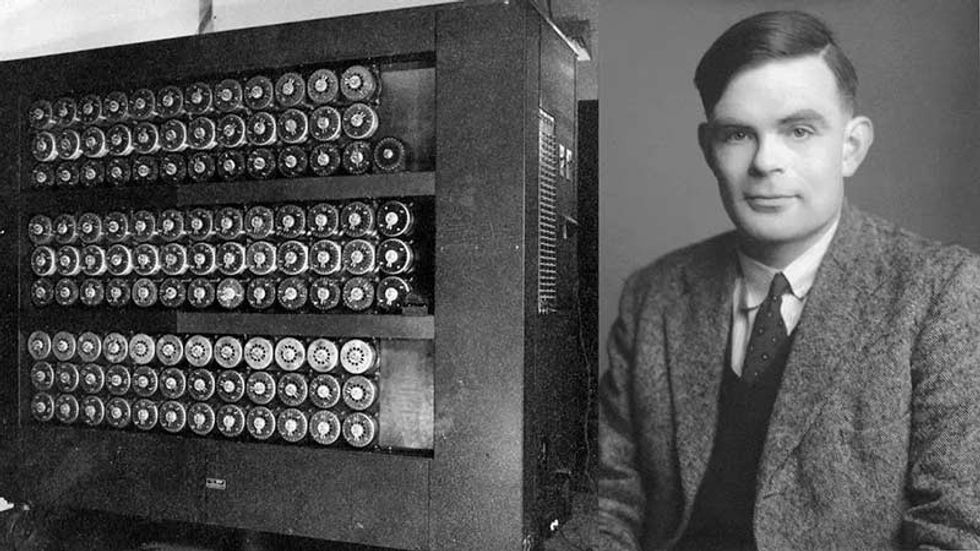
But those were also the days when homosexuality was a criminal offence. Turing was tried in 1952, found guilty and chose to be chemically castrated, instead of spending two years in prison. Two years later, when he was only 41, he died after taking potassium cyanide. The general assumption is he that he died by suicide.
Goodman told Eastern Eye: “The musical is my baby, in the sense that version one was all mine and (musical director) Jan’s (Osborne) work. Then the scriptwriter Joan Greening came on board, because the first version only used Alan’s letters and academic papers. And from there, we’ve worked as a team.”
The musical, which has a lightness of touch despite the tragic ending, is directed by Jane Miles. It takes Turing through different phases in his life – school days at Sherborne, where reports despaired whether the hopeless boy would make anything of himself; his time at King’s College, Cambridge, where he got a First in maths; the time he spent in Germany; the period in Princeton where he encountered Albert Einstein; his return to Cambridge and the Bletchley years; and his trial for homosexuality before the final curtain.
Judge: “Will the prisoner please rise? Mr Turing, you have a choice. Two years imprisonment or probation on the condition that you undergo chemical castration.”
Turing: “I choose the latter.”
Sentence: “The court finds Mr Alan Turing guilty of Gross Indecency.”
The musical is a two-hander with Joe Bishop perfectly cast as the eccentric Turing; and Zara Cooke taking on the roles of various women. They include his mother; his headteacher at school; Joan Clarke, a fellow mathematician at Cambridge to whom he proposed marriage; and Mary Peterson, a woman he met in Germany and who is one of the few fictious characters in the musical.
Cooke also plays the police officer who gets Turing to admit his sexual relationship with a man called Arnold Murray.
Earlier on, at Sherborne he clearly loved his best friend Christopher Morcom, but the relationship is not turned into a romance. In any case, Christopher dies of tuberculosis.
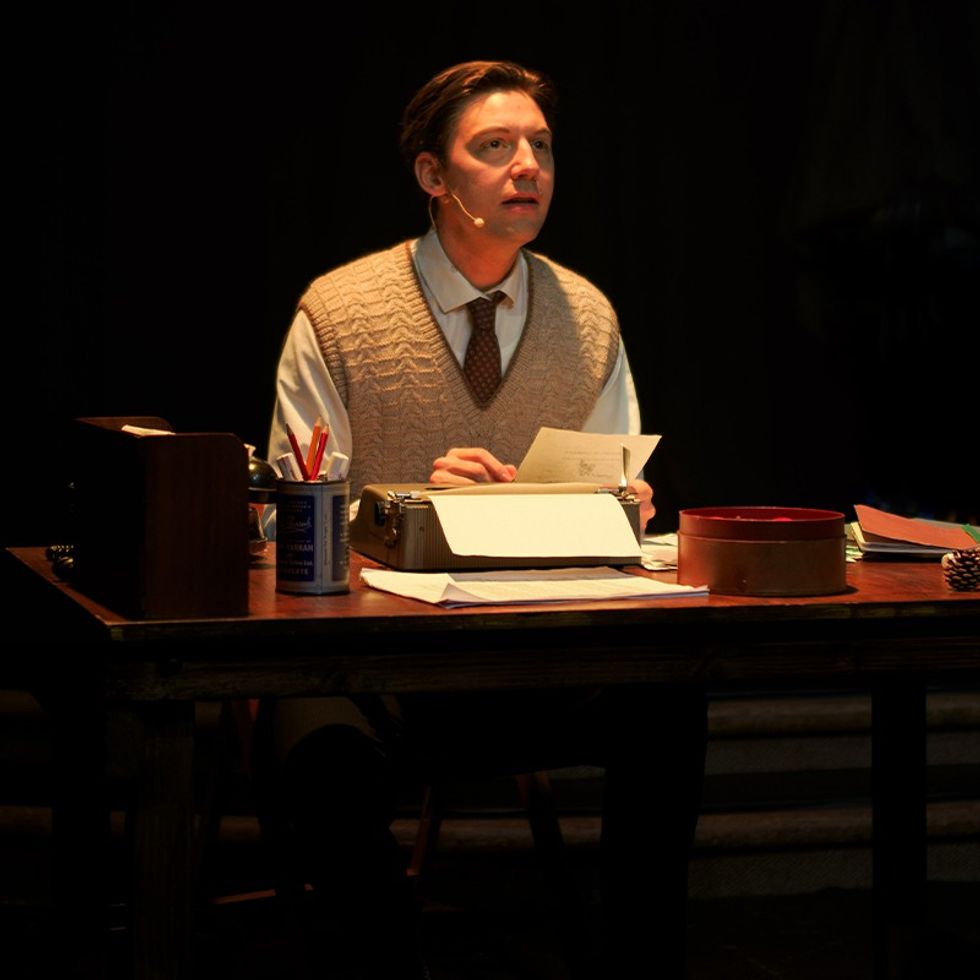
As Turing says: “The solution’s deemed improper./ A boy must love a girl./ The x and y define us, but like-minded friends attract./ The function of our bond is confined within my mind./ To contradict the rules seems unacceptable to me./ But the exponential way I feel./ It’s a paradox of loving him./ If F is friendship, C is Chris and A is Alan the equation is F equals A plus C./ Yes I’ve crossed a line.”
His engagement to Clarke doesn’t last very long.
Turing: “Joan I’m so sorry, I can’t marry you.”
Clarke: “Why not?”
Turing: “I’m not what you think I am.”
Clarke: “What do you mean, Alan? Are you a German spy?”
Turing: “No, I’m not a German spy. I’m, I’m homosexual. Please don’t hate me.”
Clarke: “Why would I hate you? I’ve always known that.”
Turing: “How did you know?”
Clarke: “It’s obvious.”
Turing: “Then why did you agree to marry me?”
Clarke: “You were better than no one.”
Following his prosecution, there is a poignant exchange between them.
Clarke: “You fought the Nazis and saved 14 million lives.” Turing: “And the government treated with me with oestrogen like the Nazis used, which was meant to cure me.”
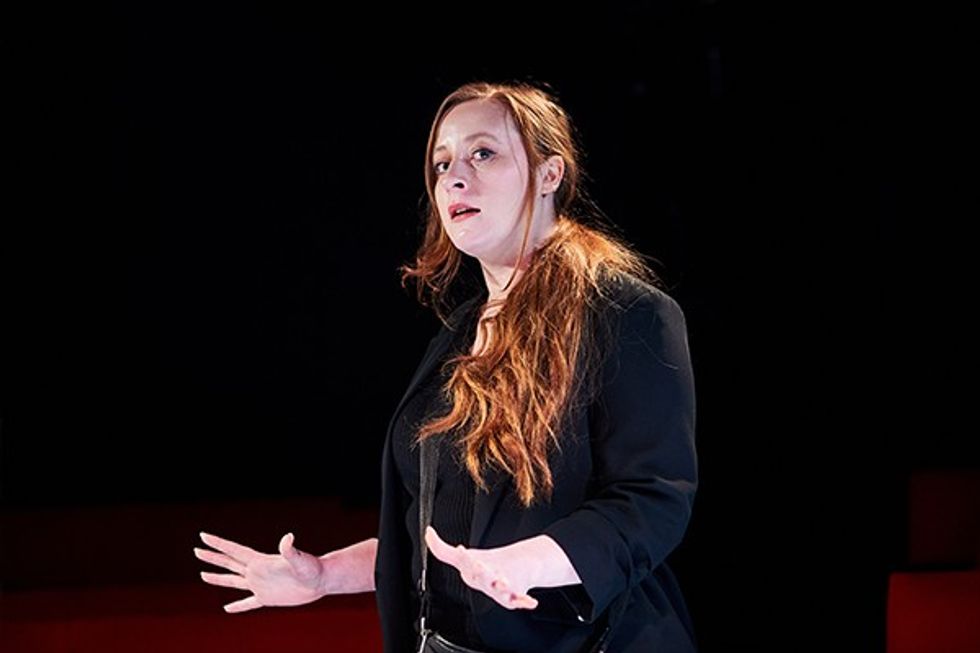
What is prescient is Turing’s prediction about the relationship between man and machines and the arrival of artificial intelligence. His words are taken from his letters and his papers, including his seminal Computing Machinery and Intelligence.
There is a gripping conversation with Peterson, who says she remembers him from Cambridge.
Peterson: “Didn’t you say you thought machines could think?”
Turing: “No I didn’t say that. I said they may be able to think. Fifty years in the future, someone will be saying to their friend, ‘Guess what my computer said to me this morning?’”
Peterson: “You can’t believe that.”
Turing: “I do and I believe that machines will become as intelligent as us. If not more so.”
Peterson: “Machines could exceed our intelligence? What nonsense!”
Turing: “You mustn’t underestimate machines just because they’re different.”
Peterson: “They’re machines.”
Turing: “They can have intelligenceconscious thought… Fifty years from now we’ll hardly discern the differences between man and machine/ What should one enquire to tell them apart./ To determine of the two, who is who?/ The subject of Picasso’s art/ Or the length and the colour of their hair?”
He tells Peterson: “I have been invited to Princeton to study a PhD in mathematical logic”.
Turing writes a letter home when he is at Bletchley: “Dear Mother, Although I am back in England I’m doing other work which means I have to go away for a while. I cannot tell you what that is – and please don’t ask – but I’ll be in touch when I can. Yours truly, Alan.”

He reflects on his work: “Never before was mathematics a fight/ Far more important than papers I write/ A secret code, a language we cannot speak!/ The future is bleak./ German brains pitted against our best!/ Many lives will be lost until we pass this test/ A secret code. Time will show numbers will solve the letters they write/ Off to Bletchley – the Government Code and Cipher School./ Cracking this code will be my toughest race/ We can’t let the Germans know we’ll leave no trace/ Under a gloomy blackout/ I see Bletchley Park, etched in the dark.
“Bletchley’s the place that we’ll end this threat!/ A secret code, a cipher that’s unbreakable/ But our chances are small. Peace has ended, war’s been declared./ Papers bring news of a military force/ It’s heading our way and its holding its course/ Plunged into darkness, Britain’s relying on Bletchley to keep liberty for all.”
The musical could have shown Turing had an afterlife. In 2009, following a long campaign, then prime minister Gordon Brown made an official public apology on behalf of the British government for “the appalling way he was treated”.
The late Queen granted Turing a posthumous pardon in 2013.
An attempt to redress the balance was made in the 2014 film, The Imitation Game, in which Benedict Cumberbatch was cast as Turing. The title of the movie was taken from Turing’s paper.
And a new £50 bank note, featuring Turing, was announced in 2019 and entered circulation in 2021. The Bank of England said at the time: “His legacy continues to have an impact on both science and society today.”
The polymer note included a quote from Turing, given in an interview to the Times on June 11, 1949: “This is only a foretaste of what is to come, and only the shadow of what is going to be.”
.Alan Turing: A Musical Biography is at the Riverside Studios in Hammersmith until next Saturday (27). It will be staged at the Cheltenham Playhouse on February 22 and 23, and will then transfer to Wonderville, St Albans House, 57-60 Haymarket, S. James’s, London SW1Y 4QX, from February 27 to March 3 2024.



















 Raj Ghatak
Raj Ghatak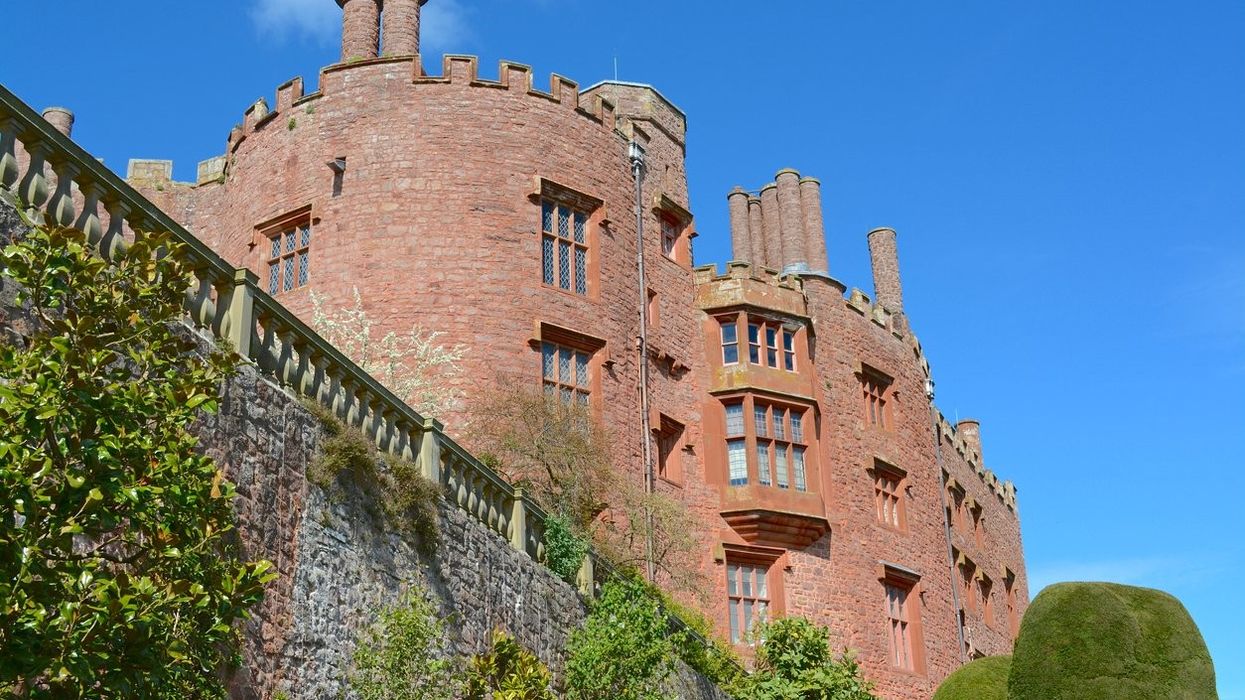
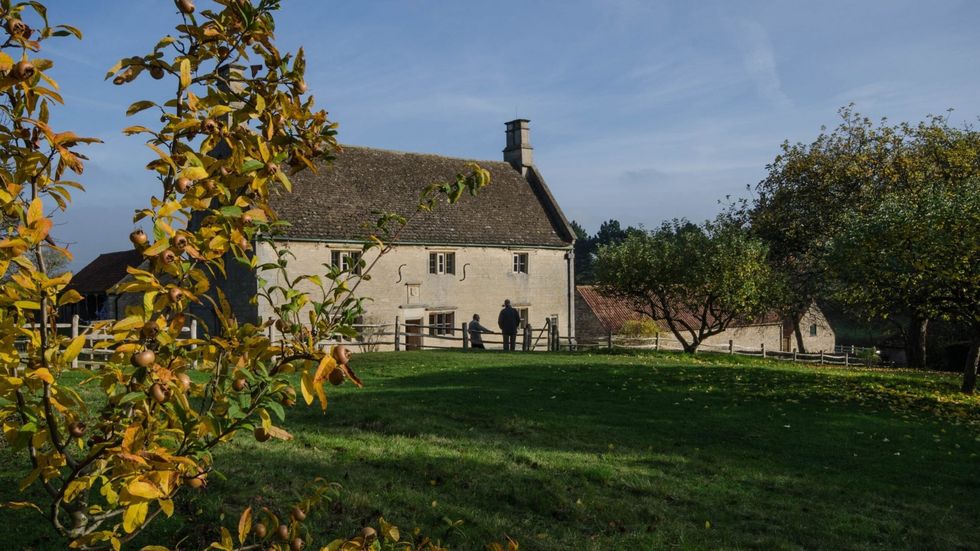 Isaac Newton’s birthplace, WoolsthorpeManor, Lincolnshire
Isaac Newton’s birthplace, WoolsthorpeManor, Lincolnshire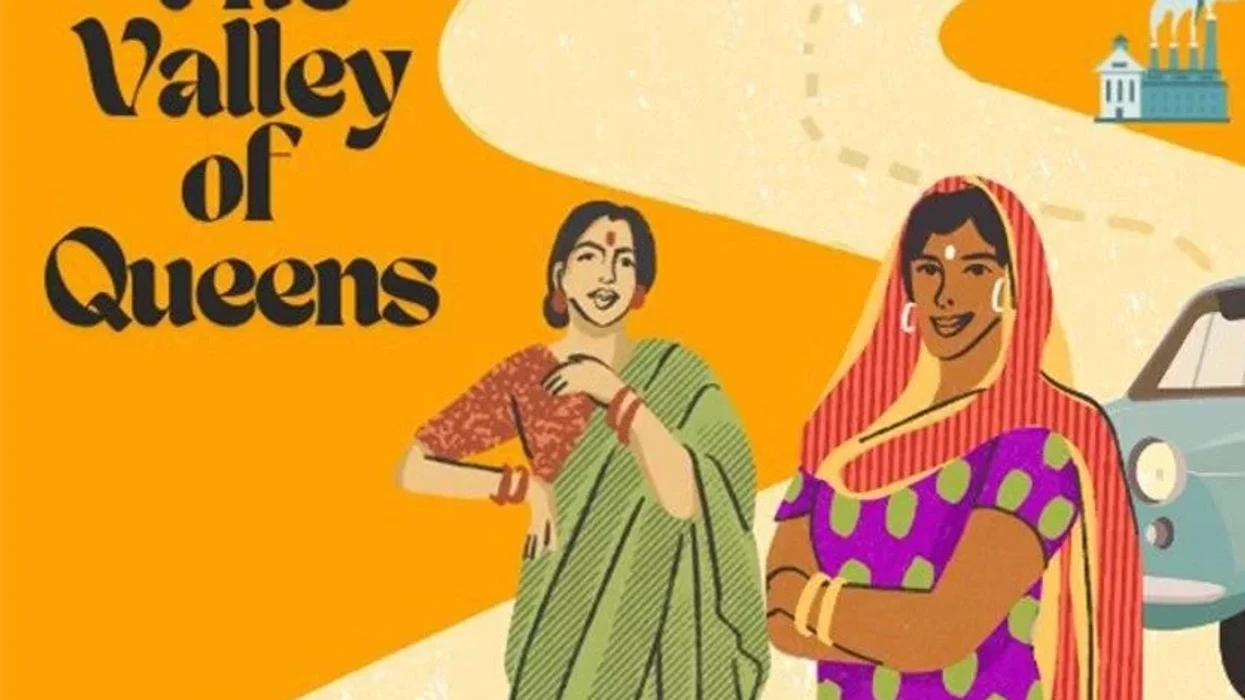
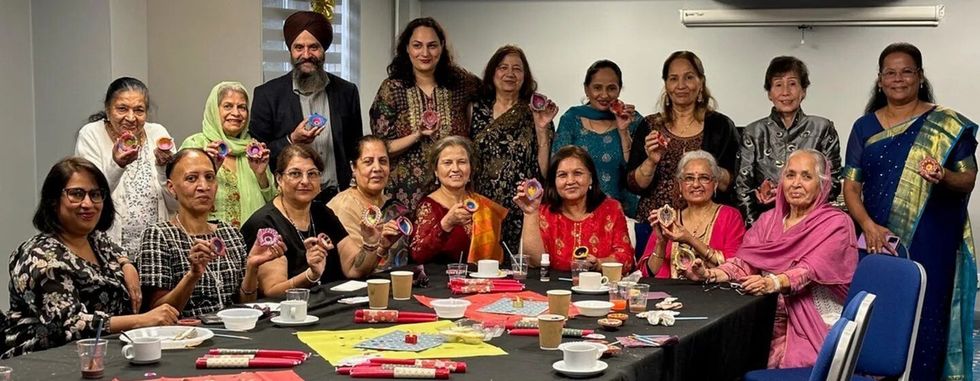 Women from the Happy Hour Project engaged in creative workshops
Women from the Happy Hour Project engaged in creative workshops